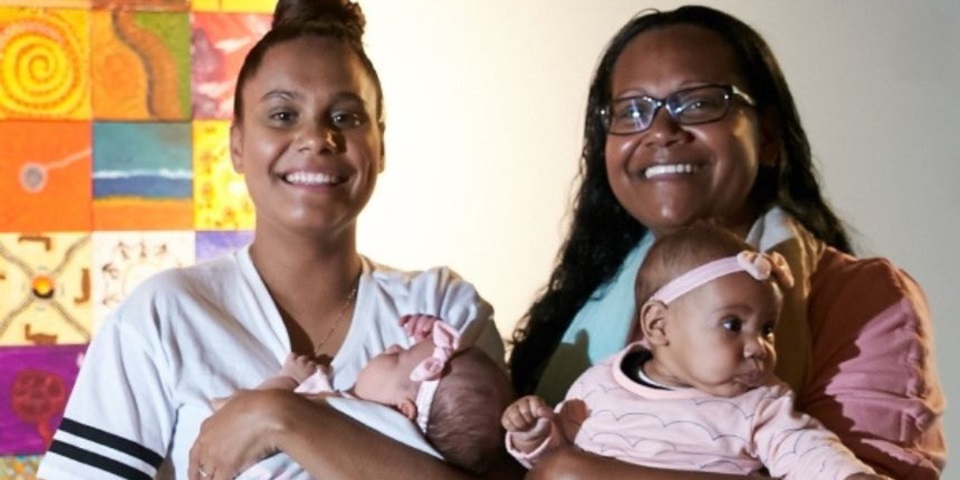News
It’s time to put mothers at the centre of perinatal care

Following the release of new recommendations by the World Health Organisation, Murdoch University academics say Australia's maternal healthcare system needs to change.
The WHO's new recommendations for care of preterm or low-birth-weight infants demonstrate the need to recalibrate Australia’s maternal healthcare system, in particular the care of Aboriginal and Torres Strait Islander mothers and babies, according to Professor Rhonda Marriott, Pro Vice Chancellor of the Ngangk Yira Institute of Change at Murdoch University.
Professor Marriott was one of two Australian members of the WHO Guideline Development Group that began work in 2020 and released the recommendations on November 17, World Prematurity Day.
Of the 25 recommendations, 11 are new and 14 have been updated, with the addition of a ‘good practice’ statement. WHO last issued guidance for preterm and LBW care in 2015.
The guideline comprises three sections: Preventive and Promotive Care; Care for Complications; and Family Involvement and Support. The latter is an entirely new addition.
Professor Marriott said the recommendations were vital to the care of mothers and babies, but Australia’s health care system must change in order to implement them to the benefit of Aboriginal and Torres Strait Islander families.
“The evidence for the recommendations is irrefutable, but implementation always requires changes, or at the very least, a recalibration of systems,” she said.
Born in Derby, Western Australia, Professor Marriott is a descendant of Kimberley Nyikina Aboriginal people, she is a nurse and midwife, and is renowned for her research in Aboriginal and Torres Strait Islander maternal and early childhood health and social equity.
She said there was a call to give power back to families which the new WHO Guideline’s third section speaks to.
“There are major issues with the support provided to Aboriginal and Torres Strait Islander mothers who live in regional areas, but equally, urban maternity services aren’t meeting their obligation to provide culturally safe services either,” Professor Marriott said.
“Neonatal care services fare slightly better, but families who come from regions are not known to be well supported.
“The WHO recommendations will help us advocate for change.”
Dr Jayne Kotz, Research Fellow and leader of Ngangk Yira’s world-first Baby Coming You Ready? project supporting Aboriginal and Torres Strait Islander parents through pregnancy and birth, said the WHO recommendations were critical for Aboriginal and Torres Strait Islander families.
“Through our research and the beginning stages of implementing Baby Coming You Ready? I’ve seen first-hand how important it is to have family support and guidance from a health care worker, particularly for Aboriginal and Torres Strait Islander communities,” she said.
“Ensuring at least two people are able to travel with mums birthing off-country, partner and mother/auntie/grandmother support is so important, they support the new mum socially and emotionally as well as with breastfeeding, expressing and supplemental feeds.
“Having trained maternal health workers is also critical for Aboriginal families and it’s important for these workers to be valued, trusted and well supported by the service that employs them.”
Ngangk Yira Associate Professor Roz Walker echoed the importance of the WHO recommendations and the need for structural changes to the healthcare systems in Australia.
“Integrating the new WHO recommendations into maternal and child health systems will require commitment and concerted action,” she said.
“This includes structural changes to place mothers and families at the centre of care, commitment by political and program leadership, dedicated funding in national maternal and child health programs, and the development and implementation of a monitoring and evaluation framework to track progress.
“Rigorous implementation of the WHO recommendations is likely to transform maternal and newborn health-care delivery across all countries, including Australia.”
For Trish Ratajczak, a Palawa Trawlwoolway Aboriginal woman, midwife, and Senior Aboriginal Research Officer for Baby Coming You Ready? at Ngangk Yira, the recommendation for breastfeeding preterm and low birth weight babies beyond six months was a change well received.
“Personally, I have seen in the midwifery profession an increase in the use of formula in ‘premmies’ which then has a cascade impact on external breastfeeding,” she said.
“The report favours early initiation of breastfeeding rather than delaying this due to the impact that infant exertion has on weight gain.
“I believe this is an important change to the future care of our mothers and babies.”
Australia’s medical innovations and Neonatal Intensive Care Units help to give life to babies who might otherwise not have survived, but Professor Marriott warned against getting complacent.
“It’s time for us to think, learn and, where necessary, recalibrate,” she said.
Discover more about how the Ngangk Yira Institute for Change is achieving authentic and culturally informed translational research in the areas of Maternal and Child Health, Family Empowerment and Resilience, and Healthy Families and Healthy Communities.News
It’s time to put mothers at the centre of perinatal care
Posted on
Topics